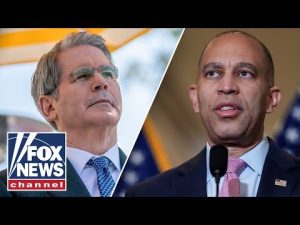Harvard astrophysicist Avi Loeb has once again dared to ask the questions the scientific establishment prefers to avoid, publicly linking the mysterious 1977 “Wow!” radio burst to the newly discovered interstellar visitor 3I/ATLAS. The Wow signal — a powerful, narrowband radio spike detected on August 15, 1977 that was never repeated — has haunted astronomers for decades, and Loeb argues the close alignment between that signal’s sky position and 3I/ATLAS’s incoming direction is too improbable to ignore, calling it roughly a 0.6 percent coincidence. This is not tabloid hype; it’s a sober challenge to the comfortable consensus that everything odd in the sky must be mundane.
The object at the center of the controversy, 3I/ATLAS, was discovered by the ATLAS system on July 1, 2025 and confirmed to be the third known interstellar object to pass through our solar system. Professional telescopes quickly confirmed a faint coma and signs of volatile activity as it moved through the inner system, behavior that many scientists point to as evidence it is a comet rather than a craft — but the data have also contained puzzling anomalies that invite closer scrutiny. We should celebrate that American sensors spotted and tracked this visitor; that kind of vigilance matters for both science and security.
Loeb and colleagues formalized their concerns in a paper posted to arXiv in mid-July 2025, arguing that certain features of 3I/ATLAS — its trajectory, apparent size estimates, and unexpected compositional signatures — justify entertaining the hypothesis of an artificial origin. Predictably, the academic gatekeepers and many mainstream astronomers have pushed back hard, insisting the simplest cometary explanations suffice and criticizing statistical arguments they say overreach. Conservatives should not reflexively defer to a smug scientific priesthood that punishes heterodox views; genuine inquiry requires funding, instruments, and the freedom to follow uncomfortable leads wherever they go.
This debate matters for national priorities. If there is even a non-negligible chance that interstellar visitors could carry technology or signals, then the United States must stop treating space as a hobby for grant-chasing academics and start treating it like the domain of national leadership it is — funded, defended, and leveraged for discovery. We should be pressing Congress to beef up persistent radio monitoring, back rapid-response telescope programs, and partner more aggressively with private innovators so we do not cede this strategic frontier to rivals while our talking heads tut-tut about sensationalism. No one is asking for wild conspiracies; we’re asking for robust, patriotic investment in tools that keep Americans first in science and security.
Finally, as social feeds filled with viral, unverified claims about coded signals and Fibonacci patterns around 3I/ATLAS, sober conservatives must do two things at once: demand rigorous investigation, and reject hysteria that undermines credibility. Loeb is a maverick worth listening to not because he craves attention, but because he refuses to let establishment complacency bury big questions — and America should back the mavericks who pursue truth, not the mandarins who police which topics are respectable. The sky belongs to every citizen, and our nation should lead the work to understand what it may be telling us.







